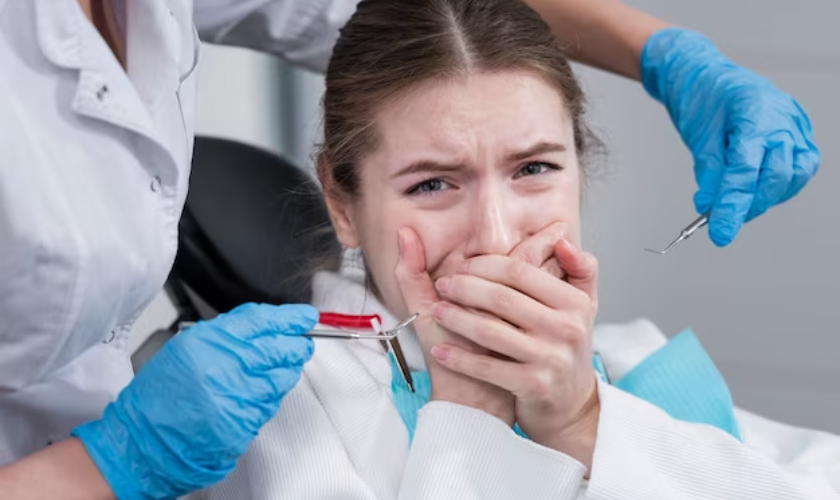San Jose, CA
Toothache Throbbing? 5 Signs You Need an Emergency Dentist Visit

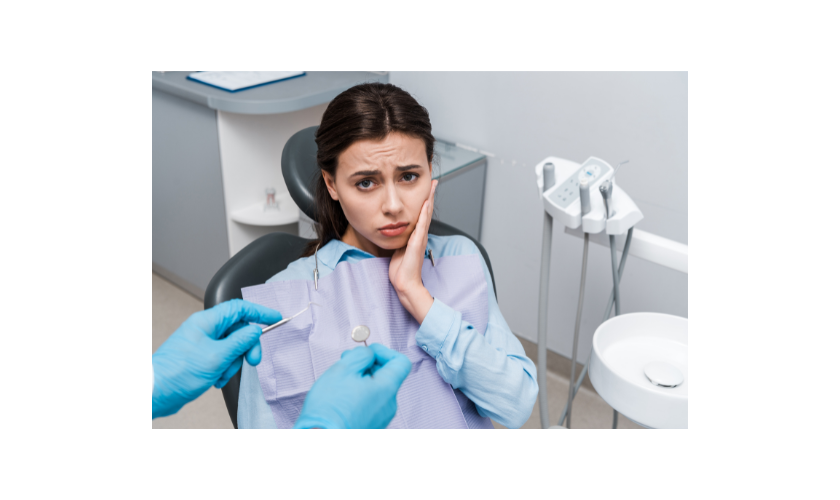
Life can be unpredictable, and dental emergencies often strike when you least expect them. Whether it’s an intense toothache or a sudden injury, recognizing when to see an emergency dentist can save you from severe pain and long-term dental issues. Let’s dive into the top five dental emergency signs that you should never ignore.
1. Severe Tooth Pain
Pain is your body’s way of signaling that something is wrong, and severe tooth pain is no exception. If you experience persistent, throbbing pain that doesn’t subside with over-the-counter pain relievers, it’s time to see an emergency dentist. Severe tooth pain can indicate various issues, including:
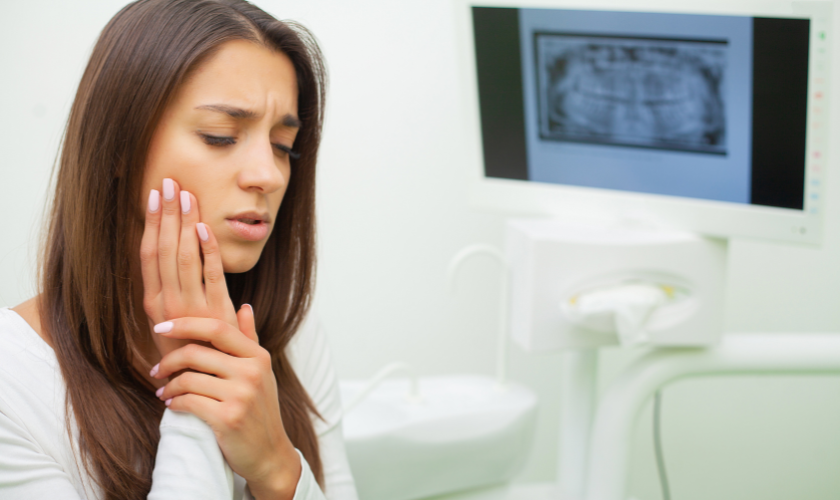
- Tooth decay: Deep cavities can cause intense pain as they reach the nerve.
- Infection: An abscess or other infection can lead to severe discomfort and requires prompt treatment.
- Cracked or fractured tooth: Damage to your tooth can cause significant pain and may lead to further complications if not addressed quickly.
Ignoring severe tooth pain can result in the infection spreading, increased damage to your teeth, and the potential for more extensive treatment. Don’t wait until the pain becomes unbearable—seek help immediately.
2. Swollen or Bleeding Gums
Healthy gums should not bleed excessively or swell. While minor bleeding can occur from aggressive brushing or flossing, persistent swelling, and bleeding are dental emergency signs that require prompt attention. These symptoms could be indicative of:
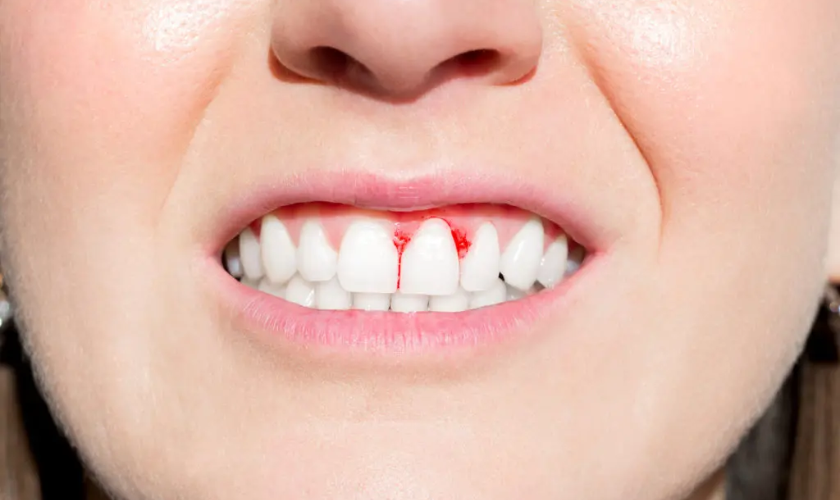
- Gingivitis or periodontitis: These gum diseases need professional intervention to prevent tooth loss and other health issues.
- Infection: An abscess in the gums can lead to swelling, pain, and even fever.
If you notice that your gums are consistently swollen, red, or bleeding, contact your dentist right away. Timely treatment can prevent the progression of gum disease and maintain your overall oral health.
3. Knocked-Out Tooth
Accidents happen, and a knocked-out tooth is a clear sign of a dental emergency. Whether it’s due to a sports injury, a fall, or an unexpected blow to the face, quick action is crucial. Here’s what to do if you lose a tooth:
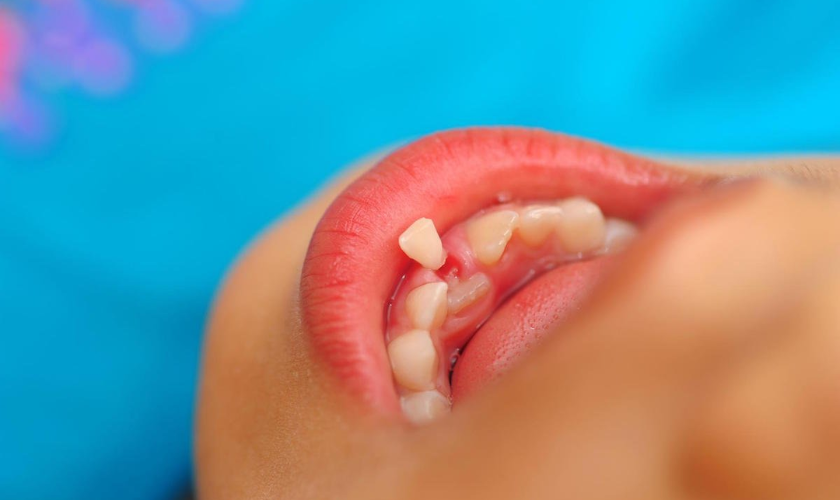
- Find the tooth: Handle it by the crown (the part that’s usually visible in the mouth), not the root.
- Rinse it gently: Use water or milk to clean the tooth, avoiding scrubbing or removing any tissue fragments.
- Reinsert if possible: If you can, place the tooth back into its socket. If not, keep it in milk or a tooth-preservation product.
Seeing an emergency dentist within 30 minutes to an hour can significantly increase the chances of saving the tooth. Delay can lead to permanent loss and the need for more complex dental procedures.
4. Cracked or Chipped Tooth
A cracked or chipped tooth can range from a minor cosmetic issue to a severe problem that risks the integrity of your tooth. Immediate attention is needed if:
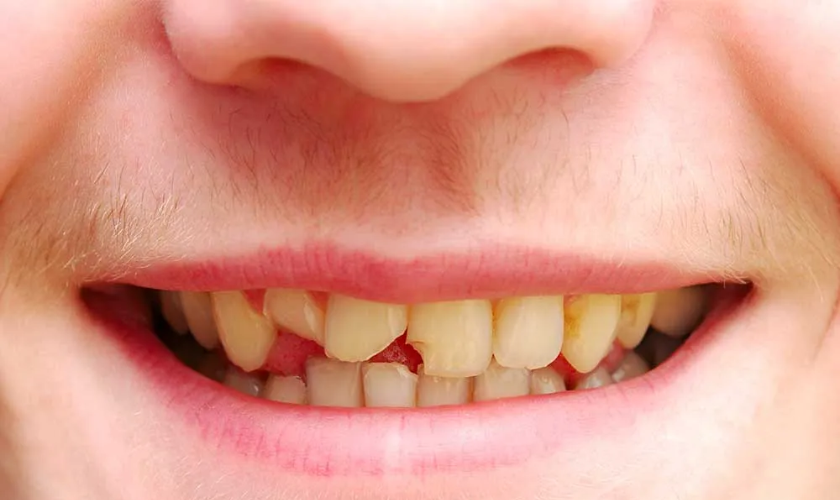
- The crack is painful: This could indicate damage to the inside of the tooth or exposure of the nerve.
- The tooth is significantly chipped: A large chip can expose sensitive parts of the tooth and lead to further damage.
In such cases, your dentist will assess the damage and recommend the best course of action, which may include bonding, crowns, or other restorative treatments. Prompt care ensures the best outcome and minimizes the risk of complications.
5. Persistent Oral Sores
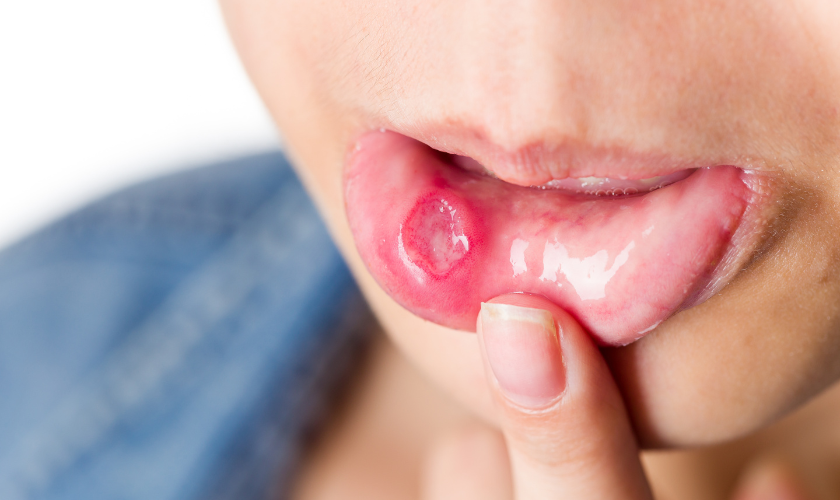
Oral sores or ulcers that don’t heal within a week or two can be a sign of a more serious issue. Common types include:
- Canker sores: While usually harmless, persistent or unusually painful canker sores need to be checked.
- Cold sores: These viral infections can be particularly painful and might require antiviral treatment.
- Oral cancer: Early detection is crucial for effective treatment, and non-healing sores can be an early sign.
If you notice sores that persist, worsen, or cause significant discomfort, seek an evaluation from an emergency dentist. They can determine the cause and provide the necessary treatment to ensure your oral health.
Other Critical Symptoms
Beyond the five primary signs, other symptoms may also warrant a visit to an emergency dentist. These include:
- Loose teeth: Adult teeth should never feel loose. This could be a sign of injury or infection.
- Jaw pain or swelling: Persistent jaw pain or noticeable swelling can indicate various conditions, including infections or fractures.
- Dental abscess: Signs include severe pain, swelling, fever, and a bad taste in the mouth. An abscess is a serious infection that requires immediate treatment.
Why Immediate Attention Matters
Ignoring dental emergency signs can lead to serious consequences, including prolonged pain, increased risk of infection, and more complex and costly treatments. Quick intervention not only alleviates discomfort but also preserves your oral health. It’s essential to know where to find an emergency dentist when these situations arise.
What to Expect During an Emergency Visit
During an emergency dental visit, the dentist will:
- Assess your symptoms: Understanding the severity and cause of your issue.
- Take X-rays: These help in diagnosing underlying problems.
- Provide treatment: Immediate care may include pain management, temporary restorations, or starting treatment for infections.
- Create a follow-up plan: Ensuring that you receive the necessary long-term care.
Preventing Dental Emergencies
While not all dental emergencies can be prevented, maintaining good oral hygiene and regular dental check-ups can significantly reduce your risk. Here are some tips:
- Brush and floss daily: This prevents decay and gum disease.
- Wear protective gear: Use mouthguards during sports to prevent injuries.
- Avoid hard foods: Don’t chew on ice, popcorn kernels, or other hard substances that can crack your teeth.
- Stay hydrated: Drinking water helps maintain saliva flow, which protects your teeth.
Finding the Right Emergency Dentist
If you’re in a dental emergency, having a trusted dentist you can rely on is crucial. Look for a dental practice that offers emergency services and has a reputation for prompt, compassionate care. If you’re in the area, finding an emergency dentist in San Jose, CA can ensure you get the help you need without unnecessary delays.
Recognizing dental emergency signs and acting quickly can save your teeth and prevent further complications. Don’t hesitate to seek immediate help when you notice severe pain, swelling, or injury. Your oral health is too important to ignore.


